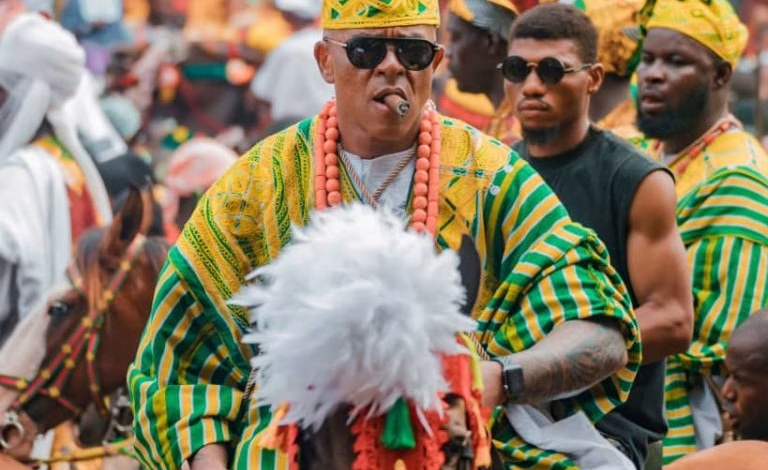
Interesting Things to Know About the Ojude Oba Festival
The Ojude Oba Festival stands out as one of Nigeria’s most vibrant and culturally rich celebrations, deeply rooted in the heritage of the Ijebu people of Ogun State. Here are some fascinating insights into this grand event:
1. Historical Roots
- Ojude Oba, meaning “The King’s Forecourt”, began in the 19th century as a modest visit by Muslim converts to express gratitude to the Awujale of Ijebuland, then Oba Ademuyewo Afidipotemole, for allowing the practice of Islam.
- It was initiated under the leadership of Imam Tunwatoba, at a time when Islam was beginning to spread across Ijebu communities.
2. From Modest Beginnings to Grand Spectacle
- What started as a small Muslim homage has transformed into a multifaith, multicultural spectacle that attracts people from all walks of life.
- Originally a replacement for the Odeda festival (celebrated by traditionalists), it later became known as Ita Oba, before evolving into the Ojude Oba Festival we know today.
3. Date and Venue
- The festival is held annually in Ijebu-Ode, specifically three days after the Eid-el-Kabir (Ileya) celebration.
- The main celebration takes place at the Awujale Pavilion, under the esteemed leadership of the current monarch, Oba Sikiru Adetona.
4. Cultural Displays and Fashion Parade
- The festival is famed for its opulence and fashion. Attendees wear exquisite traditional Yoruba attires such as Agbada, Iro and Buba, made from rich fabrics like Aso Oke, Sanyan, and Adire.
- It’s a time for fashion designers and families to showcase heritage-inspired elegance.
5. The ‘Regbe Regbe’ Age-Grade Parade
- One of the most captivating parts is the parade of age-grade groups, called Regbe Regbe.
- These groups—Obafuwaji, Bobagbimo, Bobakeye, Gbobalaye, Gbobaniyi, and others—compete in dance, costumes, and presentation of gifts to the Awujale.
- With over 90 age-grade groups participating as of 2024, this segment alone draws over 100,000 attendees.
6. Balogun Horse Riders
- Decorated horse riders from prestigious Balogun families (e.g., Balogun Kuku, Odunuga, Alausa, Alatishe, Adesoye) add pomp and tradition to the event.
- These horsemen are a symbol of Ijebu’s historical warrior heritage and a key attraction.
7. Political, Social, and Religious Unity
- Although born out of Islamic tradition, the festival now welcomes participants of all faiths and ethnic backgrounds, becoming a symbol of unity and community pride.
8. Economic and Tourism Impact
- The festival significantly boosts tourism and commerce in Ogun State, drawing local and international visitors.
- Vendors, artisans, hotels, and transport services benefit greatly during the celebration.
9. Influence of Media and Corporate Sponsorship
- Social media and influencers play a key role in popularizing the festival globally.
- In 2024, content featuring Farooq Oreagba, CEO-designate of NG Clearing Limited, went viral, attracting international buzz.
- Sponsors like Globacom Nigeria and the Ogun State Ministry of Tourism actively support the event.
10. UNESCO Recognition in View
- In 2024, Nigeria’s Minister of Culture, Art, and Creative Economy, Hannatu Musa-Musawa, revealed that efforts are underway to secure UNESCO recognition for Ojude Oba as an officially protected cultural heritage festival.
11. Looking Ahead to 2025
- The 2025 edition is scheduled for a Sunday, with expectations running high.
- According to Fassy Yusuf, Coordinator of the Ojude Oba Festival Committee, over 100 million participants are expected either in person or online, with plans to stream the event live from the Utoro Centre.
12. COVID-19 Impact
- The festival was suspended in 2020 and 2021 due to the pandemic, showing respect for public safety as directed by Oba Adetona.
- Since then, it has bounced back stronger, maintaining its relevance and grandeur.
The Ojude Oba Festival is more than just a cultural event—it’s a celebration of heritage, unity, and resilience that continues to grow in prestige and global recognition each year.







